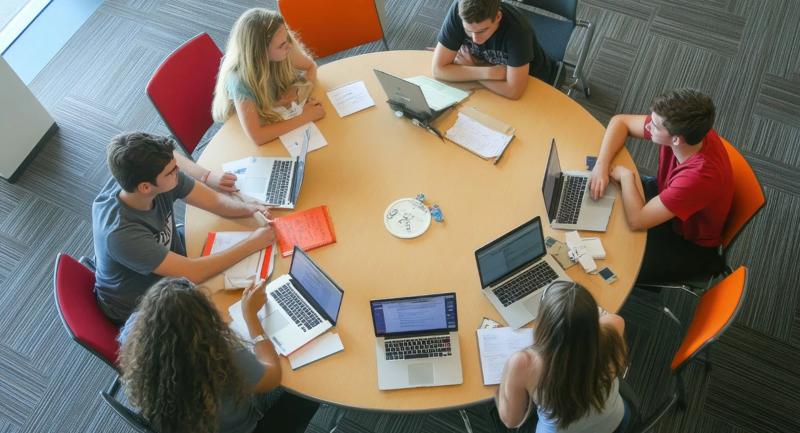Edcamps, a type of unconference specific to K–12 education, have grown in popularity for one major reason: Educators get to choose the areas in which they want to develop skills as professionals. While attending an edcamp, I noticed how motivated educators became when they had a say in the problems they wanted to tackle. This type of intrinsic motivation is something that schools seek to inspire in students, but it can be challenging to integrate choice while staying true to the curriculum and standards. That's where student edcamps come in.
As an aspiring leader in New Jersey's Harrison Township School District, I have experienced student edcamps firsthand. The logistics seem simple, but this is a disruptive innovation that takes careful planning. Your school district should set certain goals before embarking on a schoolwide rollout. Our first goal was to determine how often student edcamps would take place. This started with a pilot period during the final few weeks of the 2015–16 school year, a perfect time for experimenting. Teachers created bulletin boards asking students to consider the following questions:
- What do you want to explore?
- Whose life could you help change?
- What topic or skill can you learn on your own?
From there, we asked students to name one thing they always wanted to know how to do and post their responses on sticky notes. Teachers scanned the boards and developed 10 opportunities for learners to choose from, selecting topics that connected to state learning standards and that could be facilitated with materials already available in the building. A few examples included sewing, video game design, and poetry.
Students then voted on which session they wanted to join, and we generated rosters for our edcamp classrooms. I personally facilitated a class for 6th graders on magic. Throughout the three-day pilot (held during a 45-minute English language arts common period), students expertly solved problems and persisted as they learned a new skill. They could have given up or asked for someone to spoon-feed them answers, but instead, they persevered using discovery, inquiry, and trial and error.
One of my quietest students displayed incredible public speaking skills as he wowed us with tricks he taught himself by studying videos. I would not have been able to create an assignment that could elicit the level of joy I saw on his face as he performed magic for his classmates. This student—who at one time was reluctant to read aloud—enthralled the class and projected his voice with confidence.
What was the difference with the edcamp? The student chose his own learning experience and ran with it. His mother emailed me that week and said that when her son practiced at home, he realized how much mathematics played a part in his detailed card tricks. The complexity of his tricks demonstrated his strength in mathematics, memorization, and hand-eye coordination. This is what problem solving should look like in a 21st century learning environment. The problems should be personally relevant to the problem solver. Creating a scenario for such problems to surface is difficult, but it is not impossible when learners have a chance to explore and teachers get the support they need.
After our trial run in the spring, it was as if a wave of inspiration flooded our hallways. The administrative team created a schedule the following fall so that each grade level would have their own common period, dubbed "edcamp," once every six days. This shared time slot gave teachers flexibility with their planning. Detailed lesson plans were not required because it would be impossible to anticipate what the students would want to work on. We received a lot of questions from our teachers and requests for support, so we worked as a school community to allocate resources and staffing. We also created a special task force to ensure academic rigor in each of the sessions.
What did we achieve from running edcamps for a year? Students built a Little Free Library (so that kids could access books over the summer), repaired damaged clothes to donate to the homeless, created 3-D printing inventions to help students with disabilities, organized fundraisers for the American Cancer Society, and learned about topics that personally interested them.
Student edcamps have allowed us to explore new pedagogical practices, innovations, and technology initiatives—and they have inspired our teachers to integrate more choice in their classrooms. This learning model has revolutionized our school, and we are just getting started.
Would you like to write for the next "Road Tested" column? Click here for submission details.





